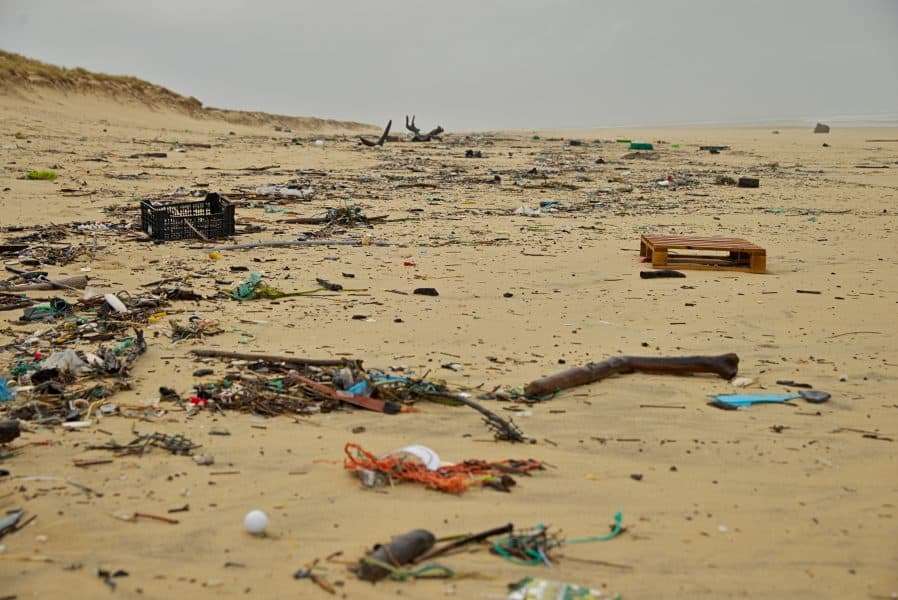There’s never been so much preoccupation with nature as we see today. Even the travel industry is changing. People are gradually looking for eco-friendly things to do. So, sustainable tourism is on raising nowadays.
In 2017 the UN was declared the ‘Year of Sustainable Tourism’. Those days in a topic that almost everyone talks about it. From newspapers, television, blogs to travel agencies, there is so much information. According to the United Nations World Tourism Organization, international tourist arrivals by region are growing through the years. So, it is important to educate travellers to be responsible when travel.
But to practice sustainable tourism you must understand what it is, what benefits can bring and how can you help. It is a constant learning process. Sometimes not an easy thing, but for sure you are contributing for a better world.

What is Sustainable Tourism?
When we talk about sustainable tourism we tend to think in the environment. But, if you look for a definition is more.
Sustainability is often related to a balanced environment. Is the process of development that satisfies the needs of the present. All of this without affecting the ability of future generations to satisfy their needs.
This kind of tourism takes full account of its current and future economic, social and environmental impact. It does not only visit someplace as a tourist but, also create a positive influence in all the surrounding.

Benefits of Sustainable Tourism.
Sustainable tourism not only has assist travellers but, also local communities. So, more and more are changing the way they see travels.
This can create a positive impact on a country. Travelling shouldn’t be harmful and people finally understand this. Sustainable travel is all about showing that we care.
Nowadays, the number of people travelling is increasing. If we don’t do it in a responsible way, how can we afford to continue to travel? Tourism can be good and have enormous potential. But, tourists have to be conscious of it.
The mainly three things sustainable tourism can be responsible are: benefits the environment, help local communities and can have economic advantages.
If people do not travel, there is no tourism. So, sustainable tourism is also linked to a concept of sustainable mobility.
It always up to us tourist take a positive impact. We have the power to choose. Today we have so many information that we can do it in the right way. Always remember this is not only good for you but, for everyone in the world.
How to be a Sustainable Tourist
People actually should understand to have sustainable tourism there a lot to be done. It is hard work that includes: governments of a country, organizations, local people and tourists.
As a tourist, you play a crucial role. You are visiting a country, contributing to tourism and the economy.
So here some things to have in mind when you are in a new destination:
- choose eco-friendly tours operators;
- buy from local communities;
- make use of natural resources;
- try to minimize your trash (don’t leave anything behind);
- do not disturb fauna and flora;
- respect the traditions and culture;
- eat local food. Don’t be afraid to try it;
- use eco-friendly transportation as much as you can;
- stay in eco-conscious places. Many hotels are even changing towards sustainable and ethical;
- don’t exploit animals. Always question all animal experiences.
There are so much more you can do to be a sustainable tourist. Even when you are backing home from travelling you can help. Just take what you’ve learned and put it in practice. Start with your daily life. Then share with your friends and family. You can make a difference.
Environmental sustainability

Of course one of the things that are always related to sustainable tourism is environmental sustainability.
It is necessary for the maintenance of the factors and practices that contribute to the quality of the environment on a long-term basis. This is how environmental sustainability takes place. Without that future generations will not have access to what we have today.
The environment is for sure important not only for tourism but, in general. If many sights we see today will disappear, in the future would not be possible to visit. When we talk about environmental sustainability is not only a natural environment but, also the built environment.
So, it is necessary to protect and preserve beaches, mountains, and forests, in the natural field. In terms of the built environment, we need to care for historic buildings and ruins.
As a responsible traveller, environmental sustainability is to be aware of the impact you have in a certain destination. If you do this, you will try to find ways to make that impact as positive as possible.
Socio-cultural sustainability

Socio-cultural sustainability today and later will satisfy essential human needs. Like for instance self-arrangement, social equity, wellbeing, education, culture, religion, peace, human rights, balance throughout everyday life and inspiration. All this, as a long-term process forming social conditions for who and what is to come.
When a place is being visited for tourists there are social and cultural impacts. Not only for travellers but, also for the host community. Local people will see their space increase with strangers. New languages and values are introduced and even the influx of migrant workers to be employed in the tourism industry.
With all these factors is mandatory minimizing the negative impact and focus on positive things. You always have to be respectful. So, promoting cultural exchange and keeping local traditions are some of the things to have in mind.
It is very interesting to getting local people involved in the tourism industry. In fact, is even an opportunity for them and for tourists to exchange ideas. Is a win-win situation. Where local communities can take visitors on a more genuine experience.
Socio-cultural sustainability is optimistic for communities, they feel a sense of ownership and pride. So, they will see tourism in a positive way.
Economic sustainability

Towards sustainable tourism, we shouldn’t forget economic sustainability. All of this revolves around the money. It is inevitable those days. But, even though money is not one of the best things in the world, it can be beneficial for tourism.
Some people even argue money is the key to making a tourism venture sustainable. In practical terms, economic sustainability means that we must use, safeguard and sustain resources to create long-term sustainable values by optimal use, recovery, and recycling.
It is essential to keep the money local. Just think about it, if the community is getting involved they should benefit from that.
This is why, for example, when hotels or companies owned and operated by a foreigner or huge international brands are not economically sustainable. They aren´t giving back to the community or contribute to the local economy.
It is imperative that governments impose rules to safeguard this. Local communities must be involved, share financial benefits and be encouraged to care about other pillars. As a tourist, we all gain from this.
Sustainable tourism shouldn’t be a one-way street. So, everyone must take part in this process one way or another. We all benefit with this. So, next time you are going to travel make sure you think about this matter. Try to put in practice simple steps like contributing to the local economy, stay in eco-friendly places or eating where the locals eat.
Always make this exercise: which one is more sustainable? Consider these points and you will be on the right way to become a sustainable tourist.
Please help us spread the message by sharing this article. It is important that more tourists join the movement to change the travel industry.
To know more about ecotourism read our Introduction to Ecotourism






2 Responses
Este tema é muito importante, cada vez mais! Muito obrigada por partilharem todas estas informações e dicas preciosas. Fiquem bem!
Nowadays Sustainability is a must we have to take a look, From my perspective every one should have a rol, so, I tried to do my best to:
Sustainable travel is crucial in combating climate change and environmental degradation. Tourism, as a major global industry, is responsible for a significant portion of the world’s carbon emissions, primarily through transportation and accommodation. Furthermore, the influx of visitors can strain local resources, harm wildlife, and contribute to pollution and waste problems. By adopting sustainable travel practices, travelers can help protect ecosystems, reduce carbon emissions, and ensure that tourism benefits host communities.